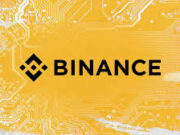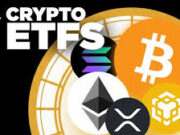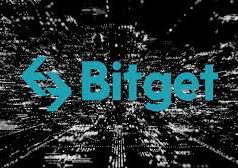The Latin American cryptocurrency scene continues to evolve rapidly, and one of its major players, Ripio, is taking bold steps to merge traditional finance with blockchain technology. The Argentina-based exchange recently introduced a stablecoin pegged to the Argentine peso, known as wARS (Wrapped Argentine Peso).
This new token launch follows closely after Ripio unveiled a tokenized sovereign bond product, signaling the company’s long-term strategy to digitize real-world assets and provide financial access to more users in the region.
By creating a blockchain-based version of the Argentine peso, Ripio aims to solve one of Argentina’s long-standing economic challenges — the instability of its currency — while providing crypto users with a way to engage in decentralized finance (DeFi) using a local value standard.
According to Ripio CEO Sebastián Serrano, this move aligns with the company’s mission to “build bridges between traditional economies and the digital world,” enabling users to interact with both systems seamlessly.
“We’re expanding the use of blockchain to real-world applications. After tokenizing sovereign bonds, launching wARS was a natural next step in connecting our users to the digital economy,” Serrano shared in a press statement.
(Source: CoinDesk, CryptoNewsLatam)
What Is Ripio and Why It Matters in Latin America
Founded in 2013, Ripio started as one of the first crypto exchanges in Latin America. Headquartered in Buenos Aires, it quickly became a hub for digital finance, serving over 8 million users across Argentina, Brazil, Uruguay, Colombia, and Mexico.
The company’s mission has always been to promote financial inclusion by offering blockchain-based tools that simplify access to cryptocurrencies. Over time, Ripio expanded from a basic exchange to a full-fledged ecosystem that includes:
- Ripio Wallet: A user-friendly app for buying, selling, and storing crypto.
- Ripio Trade: A professional trading platform for advanced users.
- Ripio Portal: A Web3 gateway that allows users to interact with DeFi apps.
- Ripio Earn: A savings feature that lets users earn yield on digital assets.
By focusing on Latin American needs — such as inflation hedging and cross-border payments — Ripio became a trusted name in the region’s blockchain scene.
(Source: Ripio Official Site)
Understanding wARS: The Wrapped Argentine Peso
The newly launched wARS stablecoin (short for “wrapped Argentine peso”) is designed to mirror the value of the Argentine peso (ARS) on the blockchain. Unlike volatile cryptocurrencies such as Bitcoin or Ethereum, stablecoins like wARS maintain a 1:1 peg to a traditional currency, ensuring price stability.
How wARS Works
Ripio’s wARS functions as a tokenized version of the Argentine peso, meaning that for every unit of wARS in circulation, there’s an equivalent peso held in reserve by Ripio or its trusted partners. This model provides transparency and reduces volatility for users who wish to transact in a stable digital asset.
Key Features of wARS
- Stable Value: Pegged directly to the Argentine peso.
- Blockchain-Based: Operates on Ethereum and other supported blockchains for maximum compatibility.
- Interoperable: Can be used within DeFi ecosystems, including decentralized exchanges and lending platforms.
- Transparent: Ripio has committed to periodic audits and public reserve disclosures.
With the wARS token, users can easily send, store, and trade peso value across borders without relying on traditional banking intermediaries — a critical innovation in a country where financial access remains uneven.
(Source: Cointelegraph, Blockchain LatAm Report)
Building on the Tokenized Bond Initiative
The launch of wARS comes on the heels of Ripio’s tokenized sovereign bond project, which was introduced earlier in 2024. That project represented one of the first major steps toward integrating real-world assets (RWAs) into Latin American blockchain networks.
What Are Tokenized Bonds?
Tokenized bonds are digital representations of traditional government or corporate bonds. Instead of holding a paper certificate or a centralized record, investors hold tokens on the blockchain that signify ownership of a specific bond or its yield rights.
This innovation simplifies access, reduces fees, and improves liquidity for financial instruments that have historically been difficult for everyday investors to reach.
Ripio’s Tokenized Bond Success
Ripio’s initiative focused on Argentine sovereign bonds, allowing users to buy fractional shares of government debt directly through its platform. By combining traditional investment products with blockchain transparency, the company democratized access to public debt instruments — something particularly valuable in emerging economies.
The success of that tokenized bond release laid the groundwork for further asset-backed products like wARS. Together, these initiatives form the backbone of Ripio’s “real-world asset strategy,” bridging digital finance with traditional markets.
Argentina’s Economic Context: Why This Move Makes Sense
To understand why Ripio’s move is so significant, one needs to consider Argentina’s economic landscape. The country has faced chronic inflation — over 120% annually in recent years — causing the peso’s value to fluctuate dramatically.
In this environment, citizens often turn to the U.S. dollar or cryptocurrencies as alternative stores of value. However, regulations around dollar usage and crypto access have been inconsistent, limiting people’s ability to protect their savings.
By introducing wARS, Ripio offers a blockchain-based alternative that maintains peso value but adds the transparency and portability of crypto. It’s a potential solution for users who want to engage with decentralized finance without abandoning their local currency.
This approach also aligns with a growing global trend — the tokenization of fiat currencies and real-world assets to improve financial efficiency.
Tokenizing Latin America’s Economy
Ripio’s roadmap extends beyond Argentina. The exchange envisions a multi-country framework for tokenized assets and local stablecoins. By expanding the concept of wARS, the company could replicate similar tokens across Latin American currencies, such as:
- wBRL for the Brazilian real
- wCLP for the Chilean peso
- wCOP for the Colombian peso
These tokens could enable cross-border payments, instant remittances, and regional trading pairs — all without relying on centralized banking systems.
Such infrastructure could transform regional commerce, offering a blockchain-based backbone for everyday financial transactions.
(Source: Finextra)
The Role of Stablecoins in Latin American Finance
Stablecoins like wARS are reshaping how people across Latin America interact with money. Because they bridge the gap between volatile crypto assets and unstable local currencies, they provide price stability, fast payments, and financial inclusion.
As a result, Latin America has become one of the fastest-growing stablecoin markets in the world, according to a 2024 report from Chainalysis. Users are increasingly relying on stablecoins for remittances, savings, and even payroll management.
By launching wARS, Ripio taps directly into this expanding market, offering users a localized digital asset that can integrate with DeFi and other blockchain applications.
(Source: Chainalysis 2024 Geography of Cryptocurrency Report)
Real-World Use Cases for wARS
The potential use cases for wARS extend beyond speculation or simple trading. Here are a few ways Ripio envisions its adoption:
- Digital Payments: Businesses can accept wARS as payment, reducing reliance on volatile crypto or unstable fiat.
- Remittances: Cross-border transfers using wARS are faster and cheaper than traditional wire services.
- DeFi Integration: wARS can be staked, lent, or swapped within decentralized finance ecosystems.
- Savings and Yield: Users can earn interest on their wARS holdings through Ripio’s “Earn” feature.
- Tokenized Investments: Combined with tokenized bonds, users could build a hybrid portfolio of stable and yield-bearing assets.
These applications showcase how Ripio’s ecosystem is expanding beyond traditional crypto trading into everyday financial utility.
(Source: CryptoSlate)
Challenges and Considerations
Despite its promise, the introduction of wARS faces several challenges. Stablecoins tied to highly inflationary currencies can struggle to maintain trust and long-term value. Moreover, government oversight, capital controls, and regulatory uncertainty in Argentina may complicate adoption.
Ripio, however, is not new to navigating Latin America’s complex financial environment. The company has maintained compliance with regional regulators and continues to emphasize transparency and user education as central pillars of its mission.
Additionally, the success of global stablecoins like USDC and USDT proves that properly collateralized digital currencies can gain user confidence — even in uncertain economies. If wARS follows similar transparency standards, it could become a benchmark for local stablecoins in emerging markets.
Real-World Assets Meet Decentralized Finance
Ripio’s dual focus on tokenized bonds and stablecoins demonstrates how real-world assets (RWAs) are becoming a cornerstone of the next phase of blockchain adoption.
By bridging traditional assets — such as government bonds and fiat currencies — with the open nature of decentralized finance, companies like Ripio are creating systems that combine:
- Transparency of blockchain
- Reliability of traditional finance
- Accessibility for average users
This convergence of systems has the potential to make Latin America a global leader in practical blockchain adoption — not through hype, but through tangible, real-world use cases.
(Source: CoinDesk, The Defiant)
A Step Toward Financial Modernization
The launch of wARS marks a significant evolution for both Ripio and Argentina’s digital economy. By blending blockchain technology with national financial instruments, the company is pioneering a model that could redefine how emerging economies interact with money.
While the road ahead may be complex, Ripio’s strategy — combining tokenized sovereign assets, localized stablecoins, and a growing DeFi ecosystem — positions it as a trailblazer in Latin America’s financial transformation.
As adoption grows, wARS may serve as more than a stablecoin; it could become a symbol of how technology empowers nations to reclaim control over financial stability in an increasingly digital world.
Sources:
- Ripio Official Website
- CoinDesk
- Cointelegraph
- Bloomberg
- Reuters
- CryptoNewsLatam
- Chainalysis 2024 Crypto Report
- Finextra
- The Defiant
- CryptoSlate



























